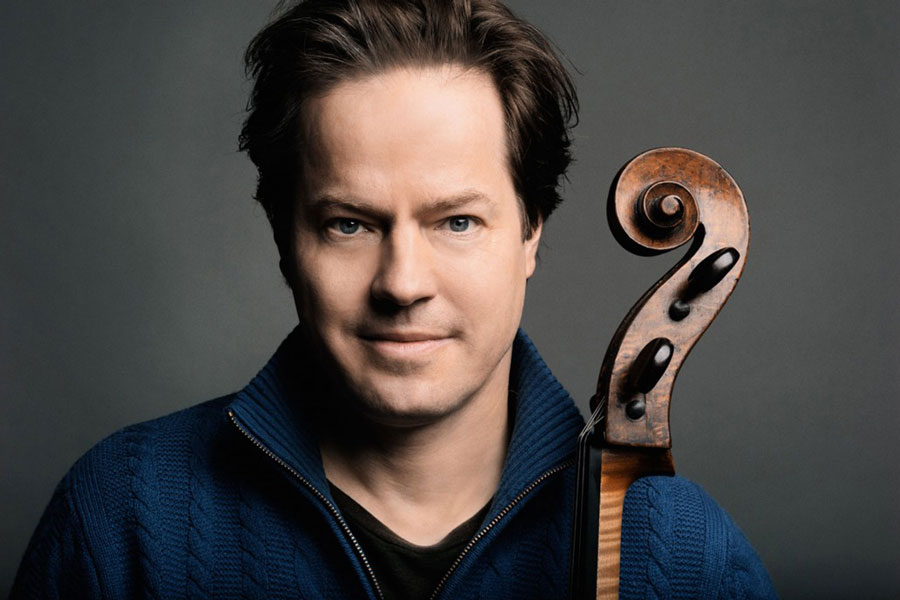Nicolae Moldoveanu was born in Romania and emigrated to Switzerland in 1986 where he now lives. He studied conducting with Wilfried Boettcher, Horst Stein, Ralf Weikert and Antal Doráti at the Musikhochschule in Zürich, Basel and Bern, also attending master classes with Lothar Zagrosek and Sergiu Celibidache. In the UK, whilst at the Royal Academy of Music in London, his teachers included Colin Metters, George Hurst and Sir Colin Davis. He also took part in masterclasses with, amongst others, Ilya Musin, Leonard Slatkin and Sir Roger Norrington. In 1994 Moldoveanu was appointed Arts Council Young Conductor to the Bournemouth Orchestras. Following a year's extension of this appointment, he was offered the post of Resident Conductor, which he took up in 1996. In 1998 Moldoveanu was appointed Principal Conductor of the English Sinfonia and in September 2002 he took up the position of Associate Guest Conductor with the London Mozart Players. He returns regularly to his native country Romania, working with several orchestras, including the Enescu Philharmonic and the Transylvanian Philharmonic, for which he served as Principal Conductor until 2012. Moldoveanu has also conducted a number of ballets and operas including Don Giovanni for the Welsh National Opera, La Vida Breve and El Amor Brujo both for the Dallas Opera, Idomeneo for the Canadian Opera House, Jenůfa for Umeå and Un Ballo in Maschera for Malmö. He has also conducted, and produced the DVD of, Coppélia for The Royal Ballet at Covent Garden, A Midsummer Night’s Dream for Fondazione Arena di Verona, Eugene Onegin and Il Pipistrello for Teatro San Carlo Napoli and recorded Swan Lake with the Royal Philharmonic Orchestra.
Jan Vogler, born in Germany in 1964, first studied with his father, Peter Vogler, and subsequently with Josef Schwab, Heinrich Schiff, and Siegfried Palm. At the age of twenty, he became principal cello of the Dresden Staatskapelle. He has been Artistic Director of the Moritzburg Festival near Dresden since 2001, and Intendant of the Dresden Music Festival since October 2008. In 2006, he received the European Award for Culture and in 2011 the Erich-Kästner Award for tolerance, humanity and international understanding. For his recording of Bach’s six Suites for cello solo he was awarded the ECHO Klassik 2014 award in the category “Instrumentalist of the Year (cello)”. Vogler plays the Stradivari 'Ex Castelbarco/Fau' 1707 cello.
Fritz (Frederick) Delius composed his opera A Village Romeo and Juliet in 1900 and 1901, adding the orchestral The Walk to the Paradise Garden in 1906, just before the premiere in Berlin in February 1907. The is opera based on the novella, Romeo und Julia auf dem Dorfe, by the Swiss writer Gottfried Keller, the “Paradise Garden” is actually a country inn and a young couple is walking there to escape their quarrelling families. In the opera, the intermezzo covers the scene change at which the fugitive lovers resolve to commit suicide together. The main theme reflects the lovers’ predicament, shall we run away or put ourselves beyond capture? The couple ultimately scampers to their mutual deaths following a blissful duet, a "love-death," in the manner of Tristan und Isolde.
Edward Elgar's Cello Concerto in E minor was the composer’s last completed full-scale composition for orchestra. Its first performance took place in October 1919, with the composer conducting and Felix Salmond playing the cello. The performance opened the first post-war season of the London Symphony Orchestra at the Queen’s Hall. The Cello Concerto is a rich composition written as two pairs of movements, including no pause between the first two and between the last two movements. The piece is filled with quiet contemplation and passionate expression. The contrast between its two characters has been said to imply the difference between public and private grief. The composition opens with a short and capricious recitative cello solo with the cellist doubling as the narrator and protagonist. It then moves into a light-hearted scherzo. The Adagio of the third movement serves as the heart of the work with the orchestra reduced, allowing the cello to sail above it. The piece then finishes, unconventionally, with a finale, which is the longest of the four movements. On August 5, 1920, after his wife Alice’s recent death and just a year after the premiere of the Cello Concerto, Elgar wrote, “I am lonely now and do not see music in the old way and cannot believe I shall complete any new work… sketches I still make but there is no inducement to finish anything… ambition I have none.”
Johannes Brahms composed his Second Symphony in the summer of 1877. Hans Richter conducted the premiere performance in Vienna on December 30, 1877. Though his First Symphony had taken nearly two decades to finish, Brahms’ Second Symphony was created quickly, during his summer holiday, in the resort town of Pörtschach, on Lake Wörth in southern Austria. “It is all rippling streams, blue sky, sunshine, and cool green shadows. How beautiful it must be at Portschach,” wrote the composers friend Theodore Billroth, after first reading the piece. Over time, the work has become to be considered, Brahms’ Pastoral Symphony, taking a cue from its sunny disposition.
The Second Symphony does have an overall formal structure, but the composer denies us the easy repetition of simple, singable tunes. The first movement opens quietly in the celli, followed a measure later by the horns. The Adagio second movement sounds like “musical prose,” and the third is a dance-like Ländler which turns into a Presto scherzo based on the same theme. The finale begins quietly with a recapitulation of the first theme followed by the second theme at differing dynamics. The dark mood and struggle of the First Symphony are set aside by the bright, cheerfulness of the Second, yet there are moments of surprising darkness when lighter composition gives way to richly harmonised passages in the low brass.
Alixandra Porembski, English Language Annotator

